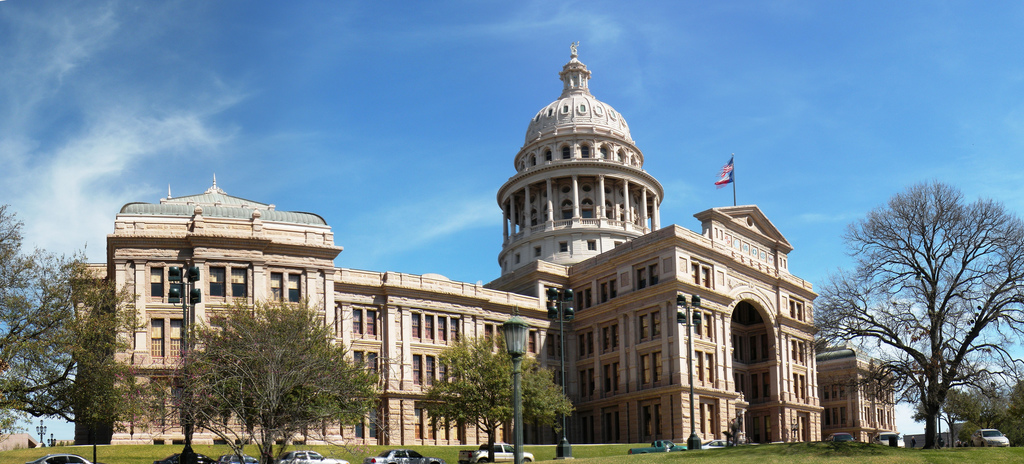Executive Summary:
- TRS provided testimony concerning the pension fund and TRS-Care.
- Use #RAISETHEBASE when communicating with legislators on Facebook and Twitter.
- The House Appropriations subcommittee has been formed.
The Teacher Retirement System of Texas (TRS) provided an update on the state of the pension fund and retiree health insurance plan, TRS-Care, to the House Appropriations Committee today, Monday, February 4.
TRS Executive Director Brian Guthrie reviewed the change to the rate of return assumption. He discussed how the TRS board felt that the investment market dictated that the rate of return assumption be lowered to 7.25 percent. Since changing the rate of return assumption, the outlook for TRS paying off its unfunded liabilities has moved back from 32 years to 87 years.
The state requires TRS to have a funding period of 31 years or less to provide a cost-of-living increase for retirees. Rep. Lynn Stucky (R – Denton) inquired about what it would take for retirees to receive a cost-of-living increase.
Guthrie said that the state would need to pass a bill that would increase funding into the TRS pension fund by $1.6 billion for the biennium. Guthrie mentioned there were three primary funding sources the Legislature could pull from: the state, school districts and active teachers.
Texas, as compared to other states with non-mandatory Social Security, ranks last in funding for its retiree pension plan.
The Texas Retired Teachers Association (TRTA) is encouraging the Legislature to raise the state contributions to the pension fund. By raising the base, the door would open for retirees to receive a cost-of-living increase or other benefit enhancement. Many retirees have never received a cost-of-living increase during their retirement.
You can help participate in encouraging legislators to help us by including the hashtag #RAISETHEBASE when communicating with your legislators on Facebook and Twitter.
Guthrie also covered the changes that occurred to TRS-Care last session. He said that the health care program continues to be plagued by funding shortfalls. TRS-Care’s funding is based on active teacher payroll, which is not linked to the rising cost of health care.
Guthrie said that TRS has worked diligently on controlling TRS-Care’s costs, but he described it as “a losing battle.” The TRS testimony didn’t mention that the projected shortfall for TRS-Care in the next legislative session would be more than $1.4 billion. TRTA believes TRS-Care funding must be addressed, as this projected shortfall is even larger than the 2017 shortfall.
TRTA applauds the Legislature for adding the supplemental dollars to help fund the projected shortfall, and we are ready to work with the Legislature to find long-term solutions. TRS-Care needs a better funding plan for the future to reduce retiree costs.
Additionally, Guthrie discussed how TRS-Care had lost more than 36,000 members after the plan changes in 2017. Guthrie did state that the population size of TRS-Care’s participants had stabilized since the massive departure. The shortfall for TRS-Care this session sits at $230 million.
Legislators will go more in depth on how to improve the pension and TRS-Care in the Appropriations subcommittee (Article III), which was formed today.
Today’s committee meeting included invited testimony by state agencies only. Stay tuned to the Línea interior and our Facebook page to find out when TRTA Executive Director Tim Lee will testify on behalf of public education retirees.
The current House Bill 1, which includes the funding for TRS, proposes to maintain all programs, including TRS-Care. As such, HB1 proposes to fill the TRS-Care shortfall by adding $230 million into the program. The additional funding from the state would allow retirees participating in the program to maintain the current benefits structure. It would not make way for financial relief for those who suffered increased out-of-pocket expenses as a result of the changes to TRS-Care from last session.
Rep. Philip Cortez (D – San Antonio) expressed concern that the HB1 budget didn’t include increased benefits or lower costs for TRS-Care participants who were negatively impacted by last year’s changes.
The current version of HB1 also doesn’t include an increase in the base rate of funding for the TRS pension fund. TRS has submitted a request for the Legislature to make a 1.82 percent increase, which equates to approximately $1.6 billion.
Rep. John Zerwas (R – Richmond) serves as the Chair of the House Appropriations Committee, and he said that there would be a “deep dive” discussion of raising the base funding for TRS in the Article III Appropriations Sub-committee.
Already, there has been a bill, SB 393, filed that would address the need to increase the base funding for TRS. The Texas Retired Teachers Association (TRTA) believes that raising the base funding for the TRS pension plan should be one of the top priorities for legislators this session.
TRTA’s legislative committee is hard at work for you, as they are visiting elected officials. Reports are good that retirees are viewed as a high priority. Member involvement is critical early in session to set a positive tone and keep elected officials focused on our major priorities.
TRTA is encouraging its members to participate on social media with their legislators using the moniker #RAISETHEBASE. Let’s rally together to improve awareness of this issue! Many retirees have never received a cost-of-living increase during their retirement, and by raising the base funding for TRS, we can pave the way for a COLA or other benefit increase to occur!




